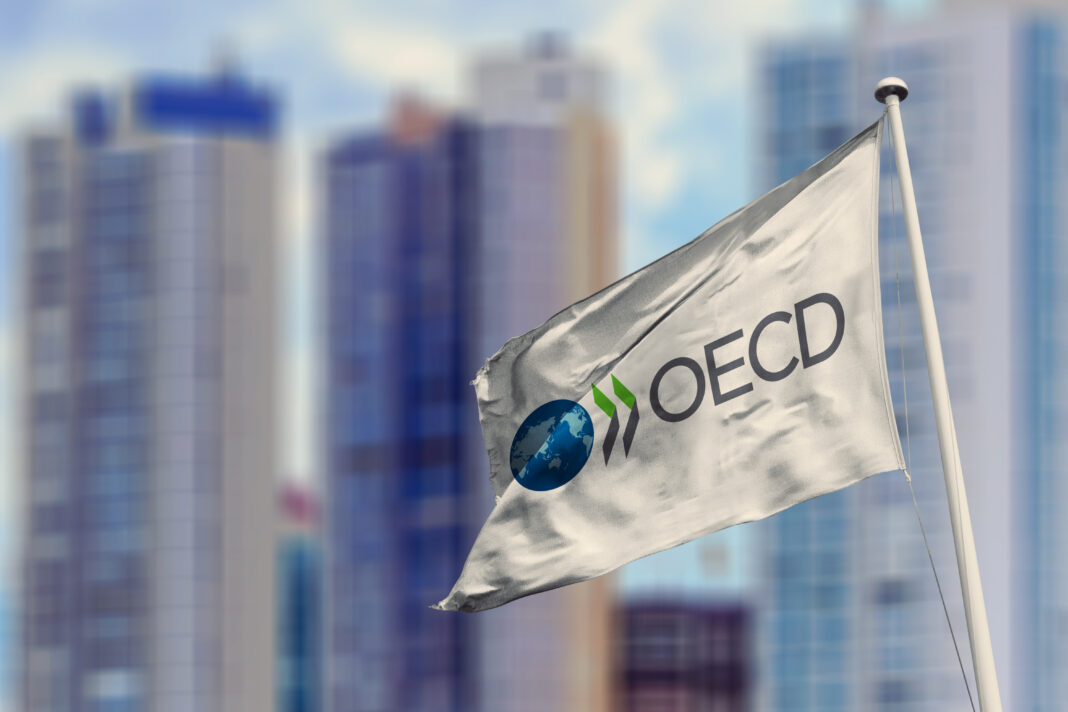by Miriam Rossi* – Unimondo**
Since the end of World War II, the Organization for Economic Cooperation and Development (OECD) has sought to build a better life for Europeans first, and the rest of the world later. Intergovernmental cooperation and development assistance are the cornerstones of an effort that the OECD continues to carefully monitor, support and communicate through its channels. In this key, the new OECD global aid figures for 2023 signal the achievement of an all-time high of $223.7 billion, up from $211 billion last year. This is the fifth year in a row that official development assistance (ODA) has set a new record (+1.8 % in real terms), boosted by reconstruction after the COVID-19 pandemic and Russia’s war of aggression against Ukraine. In 2023, aid to Ukraine, in its third year of armed conflict, increased by 9% to $20 billion, including $3.2 billion in humanitarian aid. Aid flows to the West Bank and Gaza also increased in 2023, with preliminary estimates showing a 12% increase over 2022 to $1.4 billion. From now on much will depend on the evolution of the ongoing conflict in the Middle East. Worldwide, humanitarian assistance increased by 4.8% to $25.9 billion in 2023.
However, there is another item of expenditure listed as international aid that has caused deep consternation in the sector for several years. For 7 of the 31 DAC countries, refugee costs within donor countries account for more than a quarter of their ODA in 2023. In Italy, for example, almost a third of international aid (27%, or 1,609 million euros) remains in the country, used to cover the costs of hosting migrants; these are therefore funds that are not destined for the impoverished countries of the planet. Already in 2022, the global count of resources allocated to refugees in donor countries had exceeded $31 billion, a growth of 147% over the previous year.
A real fraud, according to the analyses of many civil society organisations, first of all Oxfam, which denounces the functioning of the DAC countries (Development Assistance Committee), that is to say, the committee of 31 states within the OECD that directs the policies of development cooperation, identifies common objectives and defines the standards of the interventions to be carried out. The European Union is a member of the DAC. OECD data also show that DAC countries invested an average of 0.37% of GDP in official development assistance, a far cry from the 0.7% of GDP target set by the United Nations by 2030. Among DAC members, only five countries – Denmark, Germany, Luxembourg, Norway and Sweden – have exceeded the 0.7% target; Italy ranks 21st after Poland, Estonia and Lithuania. The largest aid donors in terms of volume are the United States, Germany, Japan, the United Kingdom and France. Of the 31 DAC member countries, international aid was higher in 14 countries and lower in 17 in 2023, in many cases due to lower refugee management costs and in some cases lower levels of international lending.
Faced with this situation, which has gone almost unnoticed by the media, 24 entities, including national and local civil society organizations and networks, have come together in the project “Cooperation: Let’s Put it on the Agenda! – Youth and Territories for Sustainable Official Development Assistance” to help improve the knowledge and skills of young people, and through them, the public and policymakers, to promote the fundamental and catalytic role of ODA in achieving the Sustainable Development Goals set out in the 2030 Agenda. The project, is intended to revive the culture, the value of international cooperation for sustainable development, the achievement of 0.7% of Gross National Income for Official Development Assistance and, more generally, the reduction of inequalities in access to health, education and the protection of ecosystems worldwide.
On the cover photo, photo illustration where the Organisation for Economic Co-operation and Development (OECD) soon appears on a flag ©rafapress/Shutterstock.com
* Miriam Rossi (Viterbo, 1981). An expert in human rights, the UN and international politics, she is a PhD candidate in the history of international relations and organisations. After 10 years in the world of research and as many in the field of international cooperation, she is currently working at the University of Trento for the wider transfer of knowledge and scientific knowledge
** Unimondo, founded on 10 December 1998 under the auspices of the Fontana Onlus Foundation, is an online news outlet dedicated to providing authoritative content on peace, sustainable human development, human rights and environmental issues. It offers diverse and timely information, amplifying the voices of different facets of Italian and global civil society. As the Italian hub of the OneWorld network, founded in London in 1995, it is part of a global network with 11 centres worldwide and 1,600 partner associations
























